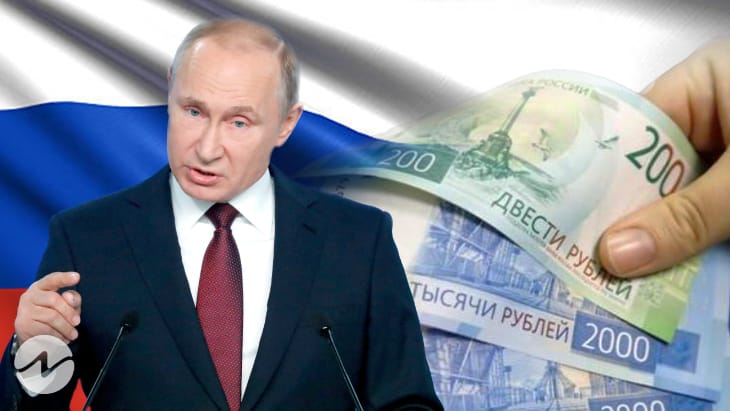- Exporters mandated to convert 80% of their foreign currency earnings into rubles.
- The EU has announced efforts to lessen its dependency on Russian energy.
Russian President Vladimir Putin announced Wednesday that Russia would only accept ruble payments for gas supply to “unfriendly countries,” including all EU members, after Moscow’s dramatic sanctions over Ukraine. The ruble, which had fallen precipitously since the outbreak of the Ukraine crisis, gained against the dollar and the euro as soon as Putin made his declaration. Meanwhile, gas prices climbed.
“I have decided to implement a set of measures to transfer payment for our gas supplies to unfriendly countries into Russian rubles,” Putin said during a televised government meeting.
New Payment System Within a Week
Putin also said that Russia would continue to deliver the amount of natural gas stipulated in its agreements. To ensure it is “transparent,” Putin instructed Russia’s central bank to deploy the new payment system within a week. This will require consumers to buy Russian roubles on the country’s internal market.
Explosive.
— Richard Medhurst (@richimedhurst) March 23, 2022
Russia is now demanding that Europe pay for gas in rubles.
Europe gets 40% of its gas from Russia. That’s 200-800 million euros per day.
Putin is basically saying: you want to play sanctions? Either pay up in rubles or freeze.
Moscow’s Institute for Energy and Finance head, Marcel Salikhov, called the measure a “symbolic counter-sanction” against the West. He said that Russia has already mandated that exporters convert 80% of their foreign currency earnings into rubles.
Even more Russian goods may be impacted, according to Putin’s comments. Russia’s space agency Roscosmos stated on Wednesday that it would demand payment in rubles from its overseas partners. President Biden imposed a 45-day moratorium on Russian energy shipments to the United States earlier this month. The European Union has announced efforts to lessen its dependency on Russian energy. However, they’re still buying from Russian oil and gas businesses, most of which are owned by the government.








